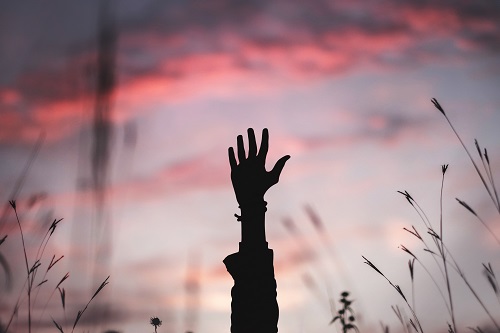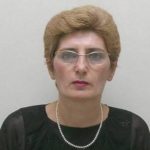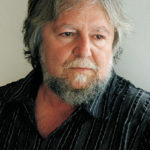By
Laureta Petoshati
When you start to read the poems written by Zvika Szternfeld you will immediately figure out that you’re meeting a poet who in every word that he writes is showing the depth and sincerity of human being’s feeling wherein the joy and sorrow, the symbol and the truth, irony and humor, art and ethics are intertwined and united.
By a sharp and smart laconism, Zvika Szternfeld makes through his poetry an approach to various problems of the society in which he lives, for example: obesity, loneliness, anorexia, family’s morality, care of the elderly, the domination of journalism on problems such as eroticism, which is a prominent theme of the poem Callipyge, etc.
In all the poetic book Temple of Loneliness, which to my opinion is the temple wherein the poet closes himself during meditation and reflection while writing a work, the poet Zvika Szternfeld unfolds with all his universality an amalgamation of classic and contemporary topics by the modern pace of writing.
Inside of this alloy melted powerfully beside the talent of the poet is also his versatile culture because he knows many languages and has traveled to many countries. What has impressed me most in this book is the poem Heat Wave, which I think is the most complex, interesting and synthetic poem of the whole book.
Here it comes to a child’s play that has to do with delousing so with lice removal. The poem begins with the lines: “The heat-wave breaks. / with moist hair/we are leaning /facing the sunset, /gazing at the sea, /Delousing.”
So we imagine a child’s play that turns into a poetic art, where the poet becomes part of the joke when he says: I ponder at the first /louse – /the incredible realization: /”I am a louse.”
When you read it, initially perhaps you get desperate and being abhorred by the louse. One may ask: Where is the beauty in this poem? French poet and philosopher Paul Valery would give us this answer: “The definition of beauty is easy; it’s what leads you to desperation.” [1]
Here the poem although reminds you of “The Metamorphosis” written by Kafka where man becomes the insect, has to do with something else. All of us, in our childhood through myths, stories and ballads narrated by parents and grandparents, willy-nilly have taken deep meanings on human realities of the country and own people. By pretending that you are a louse, it’s not a joke, it is an imagined possibility.
Man is treated as a louse by sorehead minds and this poem is a reflection on human suffering from the warmongering evil minds. Zvika Szterfeld here uses allegory wherein the louse is the personification of the human being. The heat is the war time, the head is the Earth and the louse is the human being. Are not we living in such a time wherein the war in Syria and terrorism are turning the human being into a catchpenny and the man is killed as a louse? Zvika Szterfeld has not experienced war or racism when he wrote the lyrics: “blood souring for the first time. / Blood preservation, /a primal culture, /ascending reality…” But within his conscience and memory is that hidden place, which sometimes gets unfolded and talks about genocide against his own people. Zvika’s origin is Jewish from Poland, the country that saw the murder of 90 percent of Polish Jews. In their racist laws in 1935 the Nazis included even those Germans who had a Jewish grandparent by calling them “mixed-blood”.
Philosopher and sociologist Theodor W. Adorno, given what happened due to Nazi Germany, has said in 1949, publicly: “To write poetry after Auschwitz is barbaric.” [2] He did this dictum as a German Jew when some poets of Germany were pretending as if nothing happened.
So by reading this poem written by Zvika Szternfeld you see no forgetfulness but the memory is transmitted tactfully and the question is this: A man should be so harsh on the other man, or should treat and bump him off as a louse? So horribly did Hitler to two-thirds of Europe’s Jewish population, but do not forget that also a part of the Albanians from Kosovo similarly suffered by the violence of the Serbian Military machinery about two decades ago.
Zvika Szternfeld although has the ability of narrative poems, in this case he does not do this, but he wants to bring through his art what is primitive at man and at the world that surrounds him. He uses the metaphor to make universal his message of freedom and of necessity as philosophical categories. His verses near the end of poem are significant ” what’s a pure-/ breaking the myth, the awful discovery –/ bald.” This means the Earth without vegetation. Zvika Szterfeld through this poem reminds us not only thesis of harmonious education of philosopher Friedrich Schiller but also one of his quotations such as: “If you have never seen beauty in a moment of suffering, you have never seen beauty at all. If you have never seen joy in a beautiful face, you have never seen joy at all.” [3]
Zvika expresses this joy metaphorically through the sun which is reflected in the water when he says that “The sun dawdles to the sea. /Delousing.”
This poem and all the book talk about ideas and feelings by concrete images wherein through understandable words are given great messages. The most significant message is that a poet shouldn’t give up his writing but he must go on turning the pain and the suffering into beautiful verses. This happen with a shell for which K. Jaspers said: “When we admire the beauty of the pearl, we must never forget that it originates in the sickness of the shell.” [4]
[1]. Stéphane Mallarmé (Auteur)- Mallarmé précédés d’une lettre inédite de Paul Valéry Reliure inconnue – 1948- « La définition du Beau est facile : il est ce qui désespère….” Lettre sur Mallarmé ».
[2] . Theodor W. Adorno: Kulturkritik und Gesellschaft. In: Gesammelte Schriften, Band 10.1: Kulturkritik und Gesellschaft I, “Prismen. Ohne Leitbild“. Suhrkamp, Frankfurt am Main 1977.
[3]. Ron McIntyre, Progress of Reality of Insanity, page 110.
[4]. Jaspers, K. General Psychopathology (Trans. from German by J. Hoenig and M.W. Hamilton). Manchester University Press, Manchester‚ (1963).
Laureta Petoshati
Laureta Petoshati is an Albanian poet and prose writer. She was born in Vlora, Albania where still lives recently. After graduating from Industrial High School in her hometown, Laureta Petoshati attended Faculty of Engineering in University of Tirana for about five years and received a Master Degree in Civil Engineering (Water Engineering) in 1987. She quitted her work as water engineer in 1991, so few years after she got the Master Degree to begin a career as a freelance translator and writer and from that time to nowadays she is committed to translations, literature and journalism. She published her first poetry collection Goddess of Heaven in 1996, as well her historical novel Return to Ventotene in 2012. She worked journalist in several newspapers and reporter in Vlora Channel Television mainly in her hometown Vlora. She continues to publish her poetry cycles in many national and even in some international newspapers such Knot Magazine, Albanian American newspaper – “Illyria” in New York, etc. As a poet she is a winner of one competition which took place in her hometown and as a translator she has won two national competitions. The beautiful landscape of her seashore hometown has a strong and tonic presence in her poems. She likes rhyming in the poetry because according to her the poem is like a sea, you cannot imagine it without waves.
Zvika Szternfeld
Zvika Szternfeld is an Israeli poet , translator and psychologist. He was born in Wroclaw in a family of Polish Jews and emigrated to Israel in 1957. As a teenager he lived in Belgium and Germany and today lives in Haifa.
In addition to psychology, issues of interculturality and migration, he also deals with group therapy and family counselling. He speaks 10 languages, including Polish. In Israel, his translations of poems from English, French, Polish and Amharic were published.
He is the author of nine volumes of poetry. His poems are referred to as brazen but full of extraordinary lyrical power. They are characterized by rhythm, warmth and humor. His poetry appears to be light, but on a deeper level poems portray the moving image of human condition and human situation in the complex world of global politics.




No Comments Yet!
You can be first to comment this post!